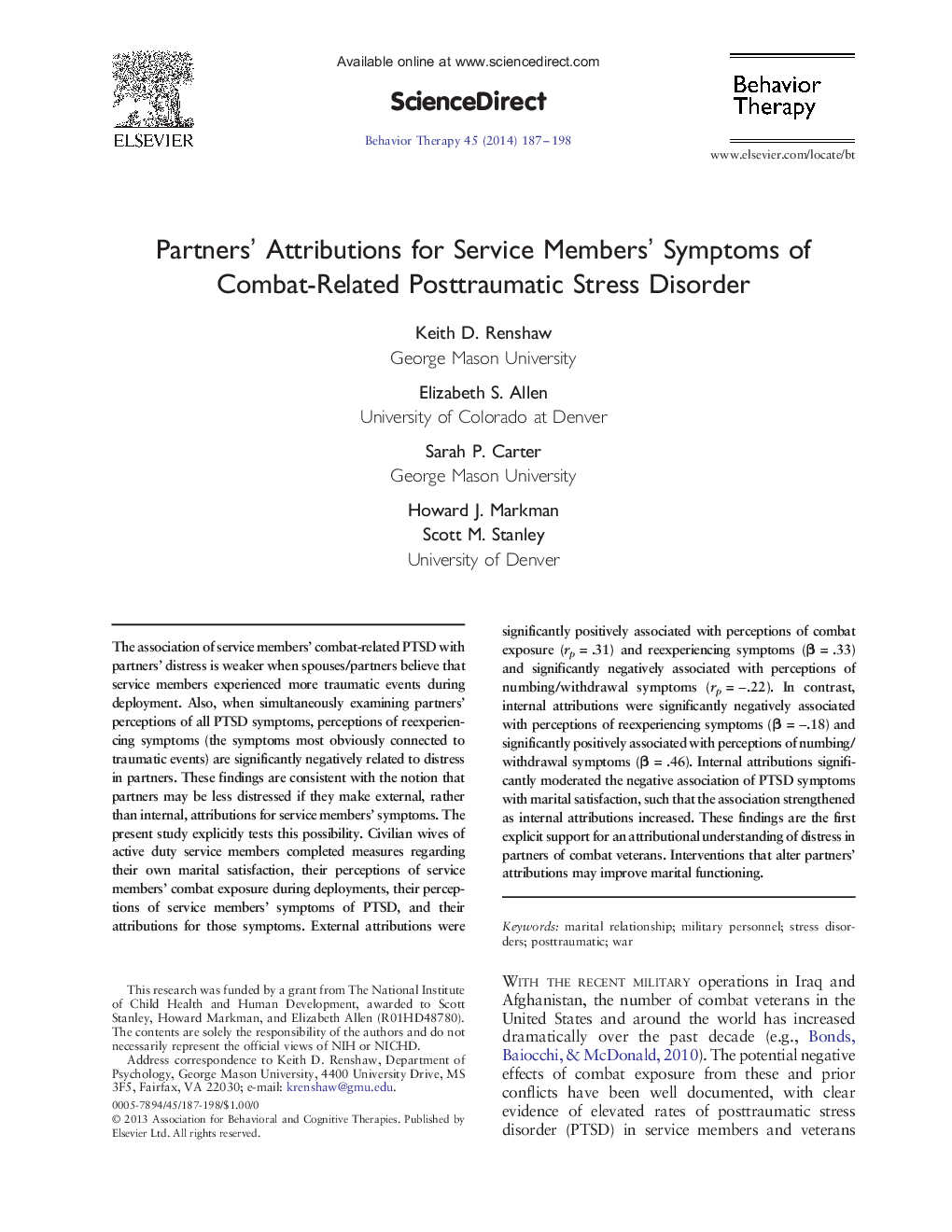| Article ID | Journal | Published Year | Pages | File Type |
|---|---|---|---|---|
| 10444162 | Behavior Therapy | 2014 | 12 Pages |
Abstract
The association of service members' combat-related PTSD with partners' distress is weaker when spouses/partners believe that service members experienced more traumatic events during deployment. Also, when simultaneously examining partners' perceptions of all PTSD symptoms, perceptions of reexperiencing symptoms (the symptoms most obviously connected to traumatic events) are significantly negatively related to distress in partners. These findings are consistent with the notion that partners may be less distressed if they make external, rather than internal, attributions for service members' symptoms. The present study explicitly tests this possibility. Civilian wives of active duty service members completed measures regarding their own marital satisfaction, their perceptions of service members' combat exposure during deployments, their perceptions of service members' symptoms of PTSD, and their attributions for those symptoms. External attributions were significantly positively associated with perceptions of combat exposure (rp = .31) and reexperiencing symptoms (β = .33) and significantly negatively associated with perceptions of numbing/withdrawal symptoms (rp = -.22). In contrast, internal attributions were significantly negatively associated with perceptions of reexperiencing symptoms (β = -.18) and significantly positively associated with perceptions of numbing/withdrawal symptoms (β = .46). Internal attributions significantly moderated the negative association of PTSD symptoms with marital satisfaction, such that the association strengthened as internal attributions increased. These findings are the first explicit support for an attributional understanding of distress in partners of combat veterans. Interventions that alter partners' attributions may improve marital functioning.
Related Topics
Health Sciences
Medicine and Dentistry
Psychiatry and Mental Health
Authors
Keith D. Renshaw, Elizabeth S. Allen, Sarah P. Carter, Howard J. Markman, Scott M. Stanley,
